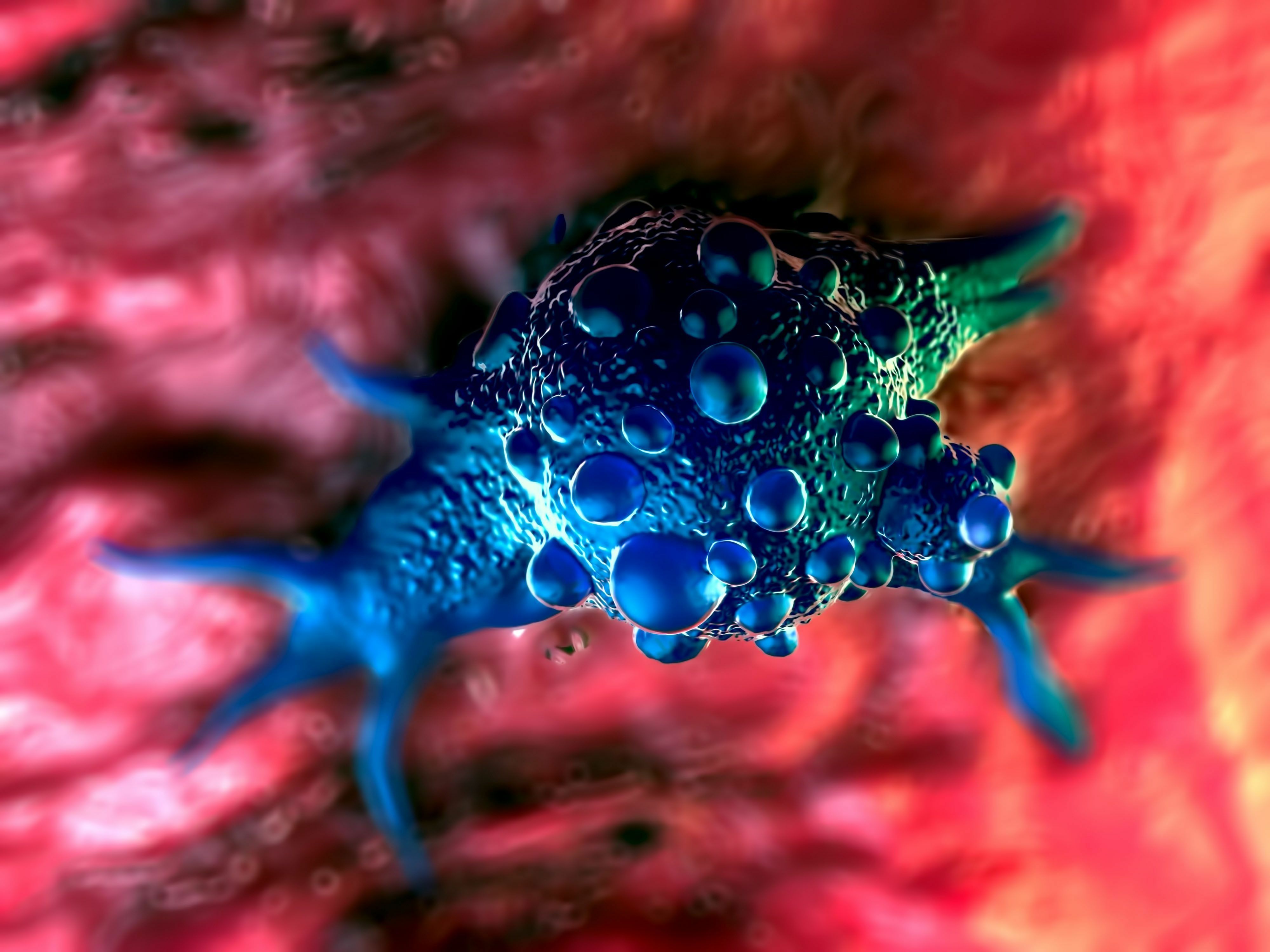- Center on Health Equity & Access
- Clinical
- Health Care Cost
- Health Care Delivery
- Insurance
- Policy
- Technology
- Value-Based Care
TAR-210 Shows Promise in Treating NMIBC With Select FGFR Alterations; Updates on MoonRISe-1
The novel intravesical drug delivery system releases erdafitinib locally within the bladder while limiting systemic toxicities.
Findings from the first-in-human study of TAR-210 were presented at the American Urological Association (AUA) 2024 Annual Meeting, as well as an update on the phase 3 MoonRISe-1 study.
Antoni Vilaseca Cabo, MD, adjunct physician of the Urology Service at Hospital Clínic de Barcelona in Spain, discussed the promising phase 1 results of the open-label, multicenter study on the erdafitinib intravesical delivery system.1
Erdafitinib is a selective pan-fibroblast growth factor receptor (FGFR) tyrosine kinase inhibitor, FDA-approved to treat adults with metastatic or locally advanced urothelial carcinoma who have susceptible FGFR3 alterations after at least 1 line of prior systemic treatment. The novel intravesical drug delivery system TAR-210 is inserted into the bladder via catheter and removed via cystoscopy and works by continuously releasing erdafitinib locally within the bladder while limiting systemic toxicities, which have been a hindrance to oral administration of erdafitinib. The delivery of erdafitinib lasts 90 days, and TAR-210 can be administered or replaced during a 2-3 minute in-office procedure.
The study categorized patients into 4 cohorts based on their disease presentation:
- Cohort 1, for patients with recurrent, Bacillus Calmette-Guérin (BCG)-unresponsive high-risk NMIBC with concomitant high-grade papillary disease who are ineligible for or have declined radical cystectomy
- Cohort 2, for patients with the same presentation as cohort 1, but who are scheduled for radical cystectomy
- Cohort 3, for patients with recurrent, intermediate-risk NMIBC with a history of low-grade papillary disease, as well as presence of visible tumor(s)
- Cohort 4, for patients with MIBC
The phase 1 results focused on cohorts 1 (n = 21) and 3 (n = 43), and found that in this first-in-human study, TAR-210 was replaced every 3 months for up to a year. Treatment response was measured in these 3-month intervals, with patients continuing treatment if they were recurrence-free in cohort 1 or achieving complete response in cohort 3.
Bladder cancer | Image credit: PRB ARTS – stock.adobe.com

In cohort 1, the study revealed an estimated 12-month recurrence-free survival (RFS) rate of 90% (95% CI, 66-97). Of note, 76% of patients in this cohort had a Ta tumor and 24% had a T1 tumor, with all 21 patients having prior BCG. With a median follow-up of 8.9 months, 2 of the 21 patients recurred.
Meanwhile, in cohort 3, the researchers found that 90% of patients (95% CI, 74-98) achieved complete response (CR) at week 12. Of those achieving CR, 86% are continuing with the treatment as of the clinical cutoff date of March 22, 2024. In this group, 95% had a Ta tumor while the other 5% had a T1 tumor, and 21% had prior BCG.
In cohorts 1 and 3, 90% and 95% of patients had FGFR3 mutations, and 10% and 5% had an FGFR3 gene fusion, respectively.
Regarding the safety and tolerability of TAR-210, 84% of patients across both cohorts experienced an adverse event, though most of these were grade 1 or 2 lower urinary tract symptoms and only 2 patients discontinued treatment due to these symptoms. There were no dose-limiting toxicities identified during the study.
“Actually, the oral erdafitinib-associated eye and skin toxicities and hyperphosphatemia were not observed in our study,” Vilaseca Cabo noted.
The findings from these first-in-human results prompted the initiation of the phase 3 MoonRISe-1 study, where TAR-210 will be compared against intravesical chemotherapy in patients with intermediate-risk NMIBC with susceptible FGFR alterations. Information on the MoonRISe-1 study was shared at the AUA Annual Meeting by Roger Li, MD, genitourinary oncologist at H. Lee Moffitt Cancer Center.2
“There still remains a critical unmet need in the intermediate-risk NMIBC setting,” said Li. “Despite available agents, there's still a high recurrence rate in this population. We also know that the incidence of FGFR gene alterations is very high, occurring in up to 80% of the tumors.”
The MoonRISe-1 study will include patients with intermediate-risk NMIBC who also have at least 1 risk factor such as large tumor size, recurrent tumors, multifocal disease, and FGFR 2/3 alterations. Half of these patients with be randomized to receive TAR-210 replaced every 12 weeks up to a year; the other half will receive intravesical chemotherapy, mitomycin C, or gemcitabine, all with a 4-6 weekly induction course and a 6-12 monthly maintenance course.
MoonRISe-1 opened for enrollment April 10, 2024, anticipating enrollment at 200 sites across 19 countries in 4 different continents. So far, MoonRISe-1 has opened at 8 sites in the US and 1 site in Israel, with 10 patients currently being screened.
References
- Vilaseca A. PD48-02: First safety and efficacy results of the TAR-210 erdafitinib intravesical delivery system in patients with non–muscle-invasive bladder cancer with select FGFR alterations. Presented at: AUA 2024 Annual Meeting; May 3-6, 2024; San Antonio, TX. https://aua2021.app.swapcard.com/event/2024-annual-meeting-san-antonio/planning/UGxhbm5pbmdfMTg0Njk2OA==
- Li R. MoonRISe-1: Phase 3 study of TAR-210, an erdafitinib intravesical delivery system, versus intravesical chemotherapy in patients with intermediate-risk non–muscle-invasive bladder cancer with susceptible FGFR alterations. Presented at: AUA 2024 Annual Meeting; May 3-6, 2024; San Antonio, TX. https://aua2021.app.swapcard.com/event/2024-annual-meeting-san-antonio/planning/UGxhbm5pbmdfMTg0MDk3OA==
